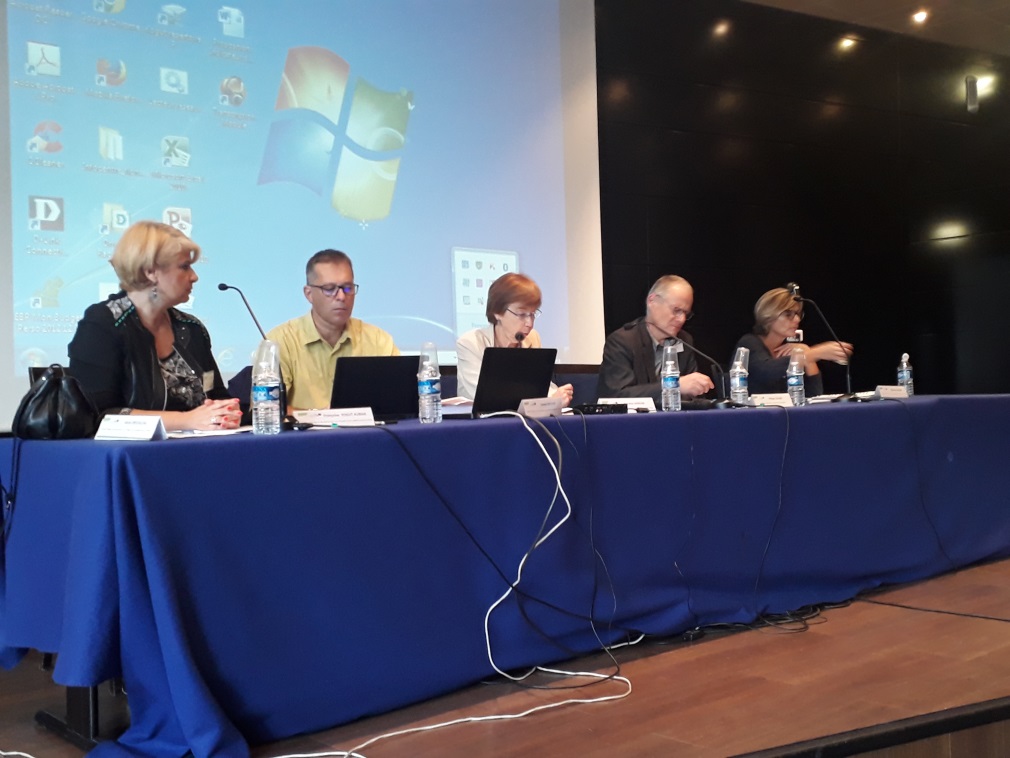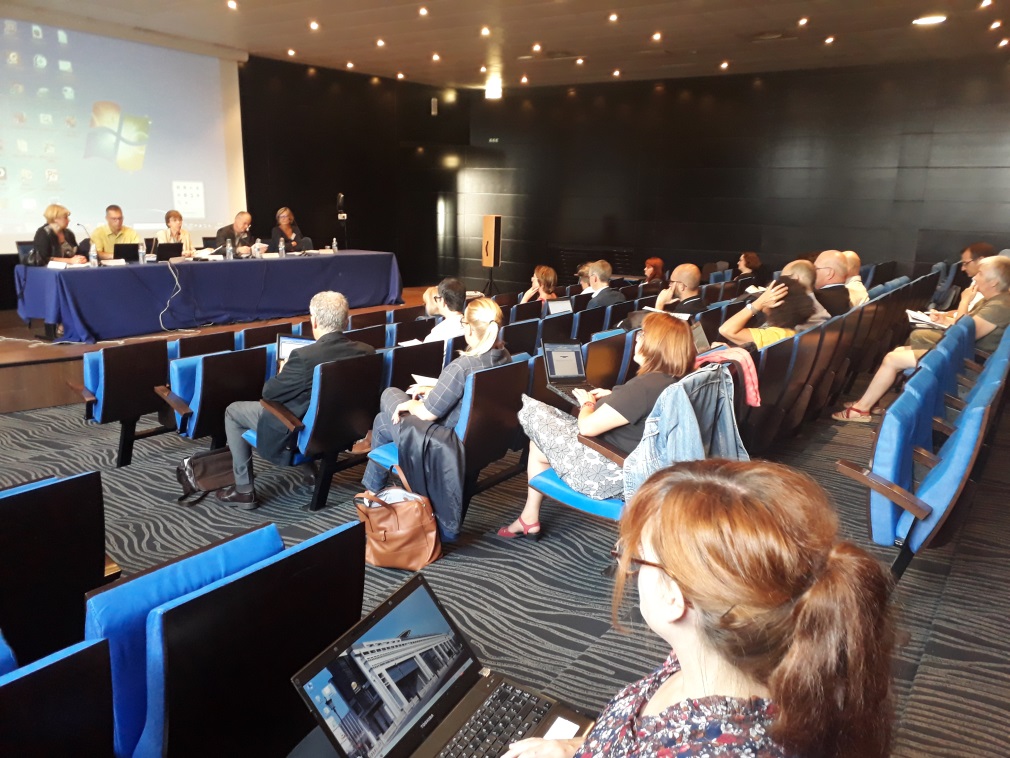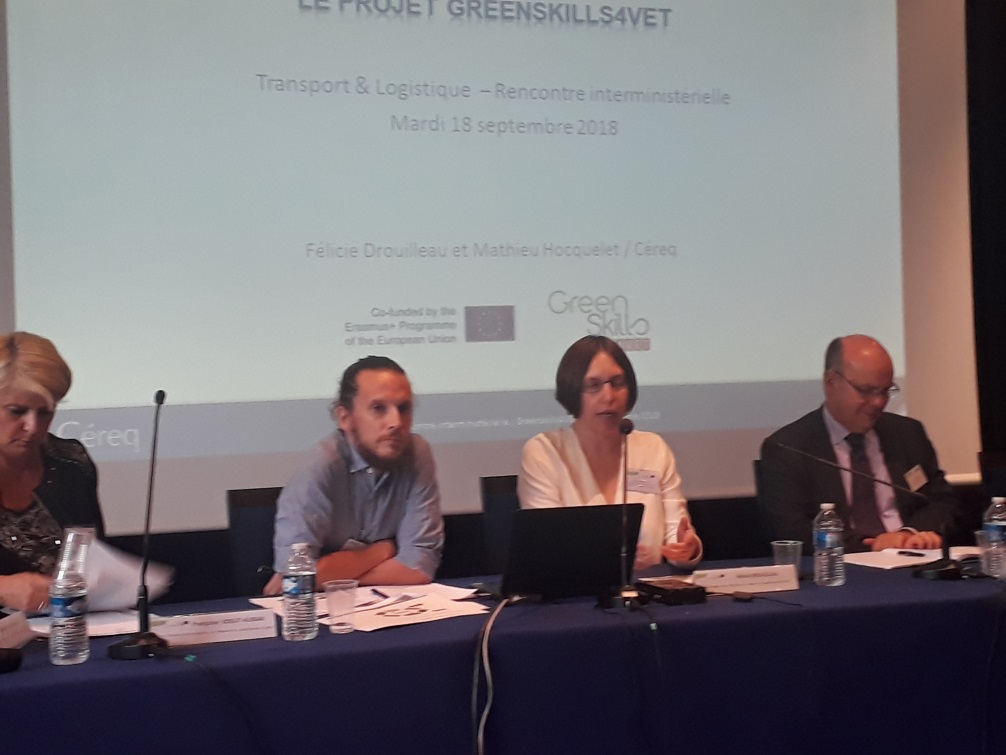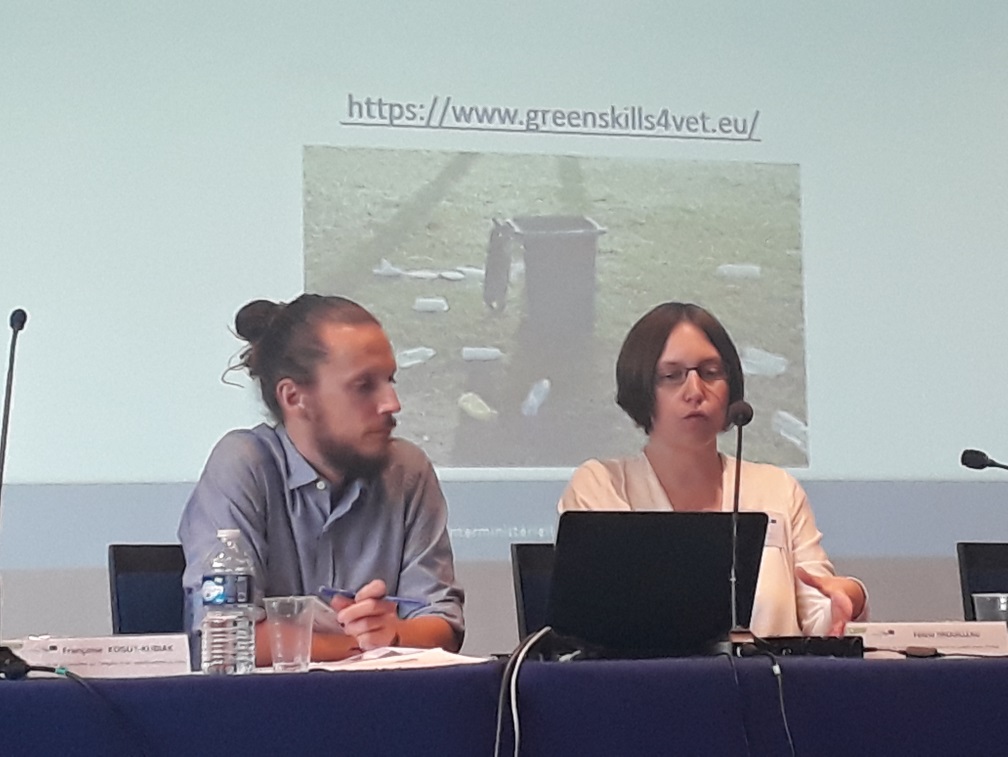Multiplier Event Transport and logistics
Paris, France, September 18th, 2018
Lycée Polyvalent « Réné Auffray » Clichy
Participant stakeholder organisations list
- Ministry of National Education (General Direction for schools teaching) (education.gouv.fr)
- Ministry for Higher Education and Research (http://www.enseignementsup-recherche.gouv.fr)
- Ministry of Finances (General Direction for Enterprises) (https://www.entreprises.gouv.fr/)
- Ministry for Ecologic and Social Transition (https://www.ecologique-solidaire.gouv.fr/)
- IGEN- National Education General Inspectorate
- AFT – Union of transports federation (http://aft-dev.com/)
- AFPA – National Agency for Vocational Adult Education (https://www.afpa.fr/)
- ADEME – National Agency for Environment and Controlling of Energy (https://www.ademe.fr/)
- French Institute of Science and Technology of Transports (ifsttar.fr)
- CFTC- Trade Union (cftc.fr)
- ASLOG – French Network of Supply Chain Companies (https://www.aslog.fr)
- PILES – Logistics Intelligence Pole, cluster of logistics companies (pole-intelligence-logistique.fr/
- Université du Littoral (univ-littoral.fr)
- University of Evry-Val d’Essonne (https://www.univ-evry.fr)
- University of Clermont-Auvergne (https://www.uca.fr/)
- University Paris-Est (http://www.univ-paris-est.fr/fr)
- Transports High School (enoes.com/est)
- MOBIS – International Research Institute for transports and innovative supply chain, NEOMA Business School (https://www.neoma-bs.fr)
- Vocational school in Transports and Logistics Soyaux (http://etab.ac-poitiers.fr/)
Short Report
The meeting has been held at the Lycée “René Auffray” Vocational Institute, located in Clichy (very close to the Paris central area). Being Céreq, located in Marseille we are used to organize events in Paris, in order to facilitate the stakeholder’s attendance.
As part of its expertise missions Céreq is full partner in all French professional advisory boards, having the task to support the different Ministries in the setup of vocational qualification standards. The meeting constituted an opportunity to engage exchanges between State’s qualifications providers (the Ministry of Education and the Ministry of Labour) and the social partners, on the basis of the research production put forward by Céreq. Taking stock of a body of recent work findings carried out by the Céreq in the framework of the GreenSkills4VET Project the meeting has been fully dedicated to the transport and logistics sector.
Our intention was to enrich the dissemination of GreenSkills4VET main results with additional background information on the state of art of the Transport and logistics sector in France. This is the reason because the morning session was entirely dedicated to the evolution of the qualification standards, employment, jobs and competences in the sector trying to interpret the main trends outlined by previous Céreq’s qualitative and quantitative analyses such as the scope and the evolution of jobs, a statistical panorama of labour market segmentation in the sector, supply-side analysis of available trainings. These presentations leaded to a larger discussion with the audience, steered by Mr. Philippe Gaumet (Director of the Union of transports federation and GreenSkills4VET silent partner) that helped to set the topic of sustainable development in Transport and logistics in a wider spectrum of economic and industrial issues. What emerged by the discussion is that sustainable development goals cannot be achieved with a simple addition of principles to traditional practices but it is necessary to introduce economic leverages capable to induce structural changes. Secondly, the qualification standards description must introduce these principles in a transversal way in the majority of skills descriptions and, what is more, a concrete way to operationalize standards into learning has to be thoroughly identified.
This morning debate perfectly paved the way to the afternoon session where, by the bias of GreenSkills4VET project findings, very concrete examples of introduction of sustainable development principles into learning practice were provided. There was a high interest to discover the proposed pedagogical approach proposed by the developed OERs. The French OER on reverse logistics was duly presented by their authors Félicie Drouilleau and Mathieu Hocquelet and contextualized in the larger set of project activities. It is not usual in French VET neither to introduce OERs in pedagogy nor to apply innovative methods like cooperative learning and digital supports. Project outputs received the praise of the participant stakeholders as concrete contribution for the active introduction of SD principle (described in qualification standards) in the day-by-day training practice. Pierre Vinard, General Inspector of the Ministry of National Education and GreenSkills4VET silent partner, pointed out how would be really beneficial to widespread the use of this module in training institutes and how the recent works of Céreq on this topic contribute to make step forward in the good direction, as useful feedback for the standard designs and pedagogical practices. It is worth to recall on this respect the will expressed by AFT to widespread the use of the Céreq OER in all Transport and Logistics VET Institutes managed by the sector council.
In the final part of the conference the issue of sustainable development has been mixed with additional research findings on the impact of digitalization on competences and skills which is particularly sensible for EQF level 4 and 5 graduates. Digitalization and sustainable development are two major changes that deeply impact competences, jobs and employability. Digitalization can help to address SD issues and the development of adapted pedagogical methods; in addition economic processes and productions are deeply affected by new technologies (even in transports and logistics). A serious analysis on SD issues should be contextualized in this scenario of new jobs, new competences and technological change.
All conference has been recorded and Céreq will publish in the forthcoming weeks the full seminar proceedings. The document will be made available on line on the Céreq website and of the GreenSkills4VET project website.

Morning opening session from left to right: Françoise Kogut-Kubiak (Céreq, head of mission), Damien Brochier (Céreq, Head of Mission), Florence Lefresne (Céreq, Director), Philippe Gaumet (Director AFT, silent partner GS4VET project), Mickaële Molinari-Perrier (Céreq, Researcher)

The audience

Afternoon Session from left to right: Françoise Kogut-Kubiak (Céreq, head of mission), Mathieu Hocquelet (Céreq Researcher, GS4VET team), Félicie Drouilleau (Céreq Researcher, GS4VET team), Pierre Vinard (General Inspector Ministry of Education, silent partner GS4VET project)

Afternoon Session from left to right: Mathieu Hocquelet (Céreq Researcher, GS4VET team), Félicie Drouilleau (Céreq Researcher, GS4VET team)
